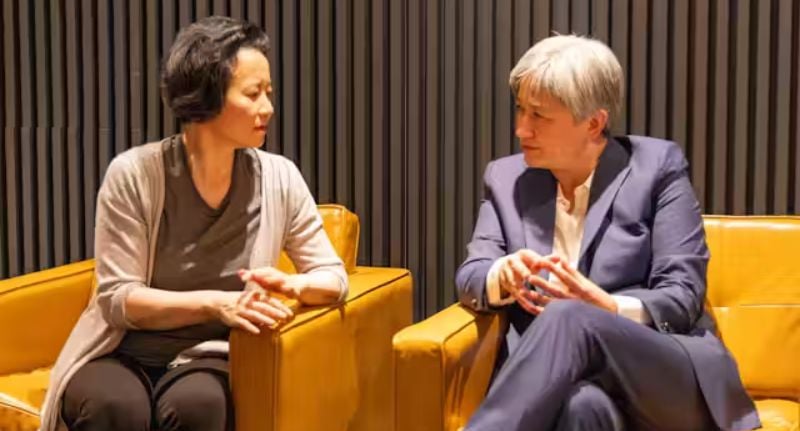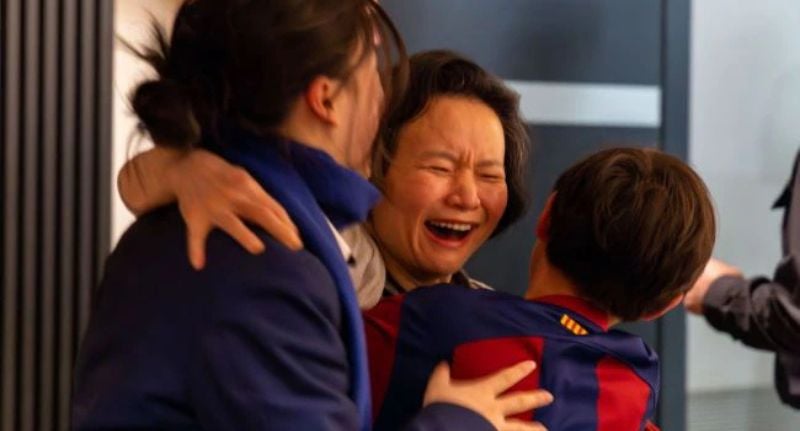For three years and two months, Australian journalist Cheng Lei lived in enforced silence. The one-time CNBC China correspondent and current Sky News Australia presenter disappeared in 2020 not from the airwaves, but from the world, plunged into a Chinese detention system where even light was weaponised and time itself began to warp.
Now, she’s reclaiming her voice.
In this episode of Mediaweek’s Newsmakers, Lei recounts her ordeal, and the brutal machinery of state power that attempted to erase her.
But this isn’t just a story of imprisonment. It’s a story of memory, motherhood, and the quiet courage of staying human in a place designed to strip you of just that.
The room with no clock
When Lei speaks, the words come quickly. It’s clear she’s been waiting to be heard. “This, for me, is a massive release,” she tells Newsmakers. “I love to communicate, and for three years and two months, I could do so little of that.”
In the early days of her detention, Lei still believed there had been a mistake. That a lawyer might appear. That the Australian embassy might intervene. Instead, the door shut. “I never saw my apartment again. Never saw my things. Not even my kids… for nearly four years.”
Inside the confines of RSDL, China’s infamous “residential surveillance at a designated location”, Lei was kept in conditions designed to fracture identity. There was no pen, no paper, and no access to the outside world beyond monthly embassy visits. “You are not yourself anymore,” she says. “They own you.”
Finding rhythm in isolation
Despite the grim conditions, Lei reveals how she clung to memory, and even music, to retain her sanity. When a fellow detainee asked her to remember a phone number, she assigned each digit a note and hummed it on repeat. “It became a melody of hope,” she says.
And though the regime took nearly everything, it couldn’t take her sense of duty, to her cellmates, to her children, to herself.
The mother wound
Lei revealed she clung to motherhood like a lifeline, both agony and anchor.
Separated from her children for over three years, she says the pain at times was so visceral, “I couldn’t breathe.” She dreamt of them constantly, only to wake up to a reality where even their photos were forbidden.
And yet, somehow, she found a way to keep showing up for them, mentally, physically, emotionally. “You just become your life coach,” she says, describing the punishing routine of stationary jogs and squats she forced herself through daily, chasing endorphins, chasing strength.
“I want to be healthy for the kids.” Even behind bars, she softened her letters with positivity, choosing not to burden them.
But, she adds, the mother who returned to her children was not the same mother who left. “Now, I just want to make them happy. I just want to make up for all the times I wasn’t there”.

Lei with Australia’s Foreign Minister Penny Wong
Beyond survival: the fight for reputation
Freedom came in 2023, following diplomatic negotiations between Prime Minister Anthony Albanese and President Xi Jinping. But the return to Australia wasn’t a neat ending. Inside China, state-aligned accounts had already painted her a traitor, a “spy” for both the U.S. and Australia.
“Show me the money,” she says with a bitter laugh. “Where’s this supposed payoff?”
She shares how her reputation in China is “forever trashed,” making it nearly impossible to reconnect with former contacts or complete even basic legal processes. “I had to go through several lawyers before one had the guts to work with me,” she says. “And, of course, he charged a higher fee.”
But speaking out, she says, is its own kind of justice. “The reason they do these things in secret is because they’re afraid it won’t stand up to scrutiny. So here I am.”
Cheng Lei: My Story is available to stream now on Sky News Australia
